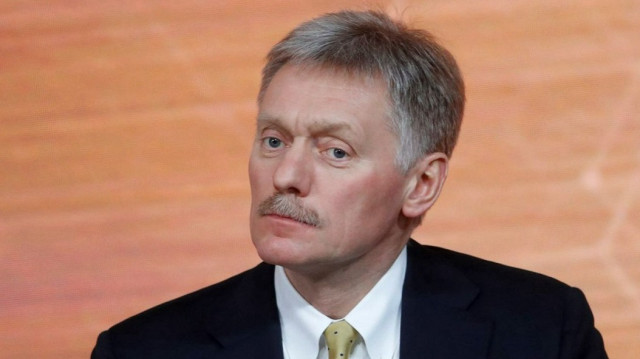

Kremlin spokesman Dmitry Peskov
Spokesman says Russia has no ‘expectations' from Olaf Scholz's visit to Kyiv
The Kremlin on Monday denied it sent a message to Ukraine through German Chancellor Olaf Scholz, who arrived in Kyiv earlier in the day for the first time in over two-and-a-half years.Speaking to reporters in the capital Moscow, Kremlin spokesman Dmitry Peskov said Russia does not have any "expectations" from Scholz's visit to Kyiv, but it is closely monitoring all contacts that will ensue in the Ukrainian capital.
Peskov argued that while Germany continues its policy of “unconditional support” for Ukraine, Moscow assessed the recent phone conversation between Scholz and Russian President Vladimir Putin with “satisfaction.” “Dialogue, of course, is always a positive development,” he said.
He reiterated that the main thing for Russia concerning the nearly three-year-long conflict is to ensure its own interests and achieve its goals, claiming there is a growing fatigue in Ukraine regarding President Volodymyr Zelenskyy's government.
"Judging by the information and statistics, the number of people who no longer accept such a constant war is increasing. And we also see that the mood in European countries is changing," he added.
Scholz arrived on an unannounced visit to Kyiv for the second time since the start of the Ukraine war more than a 1,000 days ago.
The chancellor previously visited Ukraine together with the French and Romanian presidents and the then-Italian premier in June 2022.
Scholz said on X that he will announce further military support for Kyiv amounting to €650 million ($683 million) during talks with Zelenskyy.
The German chancellor's visit to Ukraine comes more than two weeks after Putin and Scholz held a phone conversation for the first time since December 2022, which was criticized by Zelenskyy as opening a "Pandora's box."
- Georgia protests
The Kremlin spokesman also commented on recent developments in neighboring Georgia, arguing that there is an attempt to destabilize the situation there.
"We have seen similar events in a number of countries," Peskov said, claiming that the events seen in Georgia have "all the signs of an attempt to carry out an orange revolution."
He claimed that there are direct parallels between the current protests in Georgia and the 2014 Maidan protests in Ukraine, which resulted in the removal of then-President Viktor Yanukovych, who was widely regarded as a pro-Russian ruler.
He also said Russia has no information about its citizens detained in Georgia, but that they have "violated the law" in the country by participating in the rallies.
He reiterated that Moscow has not interfered and will not interfere in the situation in Georgia.
Peskov's remarks come as protestors rallied in the Georgian capital Tbilisi for a fourth consecutive night, days after Prime Minister Irakli Kobakhidze announced that his country will delay talks on EU membership until 2028.
According to Georgia's Interior Ministry, more than 110 police officers were injured during rallies organized over the past few days. It said that 21 police officers were injured during last night's protests alone.
The ministry added that 224 people have been arrested under the country's Criminal Code since the protests began.
The protests highlight growing tensions between the government and opposition, which faced off in a parliamentary election in October, with the ruling Georgian Dream party winning an 89-seat majority and securing a fourth term in office.
President Salome Zourabichvili refused to recognize the results, alleging that Russian interference marred the election, while opposition parties declared it "stolen."
#Dmitry Peskov
#Kremlin
#Olaf Scholz
#Russia
#Ukraine
#Vladimir Putin
